History Intent
At Norton, our intent is that the teaching of History will enable children to gain a strong and purposeful knowledge of Britain’s past and that of the wider world. By planning lessons into cross-curricular expeditions, History content is well-considered driven by links to our community of Norton and the wider community of Doncaster. Through the teaching of History our aim is to teach children to understand the process of change, the diversity of societies past and present as well as relationships between different groups of people. Much of our curriculum is taught through cross curricular learning expeditions that are multi disciplinary and wide reaching in their connectivity, contextualisation and relevance. This is evidenced through our standards map that outlines the subject specific historical knowledge and skills that are needed for students to access a progressively demanding curriculum thereby achieving academic success. Our intent, when teaching history through expeditions, is to inspire in children a curiosity and fascination about the world and the past, in order for them to make a difference through Protecting our planet, Standing for justice and Cultivating diversity and belonging. Each phase teaches 6 expeditions over a 2 year cycle, every phase from KS1 upwards uses the subject of history as a main driver for at least 3 expeditions. Additionally, we have a couple of ‘in house experts’ who either have experience, an interest or degree in the subject.
History Implementation
History case studies focus on developing historical skills and encourage children to work as historians. Case studies progressively build on skills and knowledge. Teachers are provided with 3 additional planning days on top of their PPA to plan their expeditions. Teachers use this time to immerse themselves in their expeditions; research the subject area; complete ‘Jeff’s Law’ and to arrange high-quality experts and field visits. As part of the teachers planning day, staff complete ‘Jeffs Law’ which means they:
- Have an overview
- Create a schedule
- Assign a leader
- Plan the first week in detail
- Complete the product themselves
From a History perspective, this means that teachers undertake detailed research and seek out experts to impart knowledge. This adds authenticity to the subject as teachers have ‘learnt the learning’ themselves. Before the expedition begins, all crews complete a ‘hit the road’’. This contains questions pitched at the objectives that will be taught. Again, at the end of the expedition, children complete a more open-ended ‘destination task’ which allows students to grapple with demonstrating their historical knowledge. Additionally, children will reflect upon the guiding question. When there is a historical driver, children will have an opportunity to reflect upon their learning and experiences to answer the GQ from a historical point of view. This is an opportunity for greater depth children to demonstrate their learning at a deeper level. Experts and field work are also important to expeditions. Experts bring 1st hand experiences that can truly inspire students such as local experts and links with Norton Local History society.
All of the learning expeditions at Norton include fieldwork and/or working with experts. This links directly to our design principle of ‘activism’ and provides students with an authentic and purposeful opportunity to further enhance their learning by engaging with experts and in environments outside of school. Engaging with experts and fieldwork offers students the opportunity to work purposefully alongside professionals, or in professional contexts, which provides deep authenticity to the learning that takes place, as well as, providing integrity, accuracy and expertise to the work they engage with. In addition, through fieldwork experiences, students understand and consolidate how the learning they do in school connects to and is enhanced by fieldwork. This provides real purpose and clarity to the learning students participate in.54
History Impact
Our children engage in learning that is made public to heighten accountability. This is manifest in the outward facing work they create which always has a public audience. Because student work is relevant, purposeful and authentic, this encourages students to craft their best work and grow their character. One particular expedition at KS1 “Diverse Doncaster, where do I belong?” focused on how the local area has changed within and beyond living memory. This included meeting Doncaster leaders e.g. Mayor and CEO of Doncaster City Council, understanding how the town of Doncaster changed from town to city and meeting experts who contribute positively to Doncaster. Children then focused their investigations on landmarks around our city, culminating in production of an interactive map of Doncaster showcasing its landmarks.
Due to the nature of this curriculum area, geography monitoring takes various forms. A key component of this is pupil voice. School leaders use pupil voice as an effective tool to ascertain the pupils’ ability to express themselves, through questioning and discussion. Expedition book monitoring throughout all year groups also takes place regularly to complement this, allowing leaders to ensure our historians have the opportunity to develop their knowledge fully and showcase their understanding. Examples of our historians’ work are exhibited throughout the school, by sharing our stories on the school website and within the local community.
